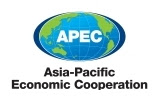 |  |
COVID-19 Trade Challenges a Chance to Refresh Asia-Pacific Integration: Report
Issued by the APEC Policy Support UnitThere is no better time than now for APEC member economies to revive the work on integrating the Asia-Pacific, being the most dynamic region in the world, and bringing new energy to the long-term prospect of a Free Trade Area of the Asia-Pacific or FTAAP, according to a new policy brief.
“The pandemic and the aftermath of COVID-19 have only stressed the significance of regional economic integration,” said Dr Denis Hew, Director of the APEC Policy Support Unit. “APEC policymakers need to address emerging trade-related issues and challenges in order to realize deeper regional economic integration.”
“It is not enough for governments to take decisive action at the domestic level when the world faces a pandemic,” said Carlos Kuriyama, a senior analyst with the APEC Policy Support Unit, author of the policy brief. “International collaboration has to be part of the solution.”
“Most importantly, any regional integration scheme, including free and/or regional trade agreements, could assist to overcome pandemic-related challenges,” Kuriyama added.
The report identified six main challenges affecting trade that are deemed most critical: 1) disruption in accessing essential goods, 2) disruption in trade in services, 3) difficulties in supply chain logistics, 4) digital transformation, 5) transparency, and 6) regulatory bottlenecks affecting trade in essential goods.
While some of these disruptions were far more severe during the first stage of the pandemic, the challenges persist. For example, some of the export restrictions to essential goods are still in place, services trade has yet to recover to pre-pandemic levels, and cross-border data restrictions have increased globally.
“There’s a need for us to resolve bottlenecks in supply chain logistics. Delays in vessel arrivals have increased in almost 50 percent since the pandemic started and freight rates for 40-ft long containers have skyrocketed in more than 600 percent”, said Kuriyama
The policy brief highlighted that APEC, as an incubator of ideas, could take these challenges into account and incorporate new topics related to trade in goods, services, trade facilitation and digital issues, among others, into the FTAAP work program.
Kuriyama explained that member economies could come together to collectively commit to not implementing export restrictions to essential goods and ensure their availability for commercial purchase. Another example is to ensure airports, ports, customs and border facilities remain operational during pandemics.
“There is also a need for APEC economies to facilitate the movement of essential workers, including air crews and maritime seafarers across borders,” he said. “Border cooperation and technical assistance needs to be strengthened by adapting modern technologies and paperless procedures.”
Important to the future of work and trade is digitalization. The report notes that modern trade rules for data privacy, data localization, cross-border data flows, and electronic commerce (consumer protection, electronic payments and electronic signatures, among others) are needed to foster the digital economy.
“While the pandemic has accelerated structural changes in the economy, APEC is in a position to influence the global trade agenda,” Kuriyama concluded. “APEC encourages the resilience of economies by undertaking collective initiatives, including capacity-building activities, in areas of growing interest. We must seize this momentum to achieve a more inclusive and sustainable future.”
To read the full policy brief, “Lessons from the COVID-19 Pandemic: A Renewed Agenda for FTAAP,” click here.
For further details, please contact:
Masyitha Baziad +65 9751 2146 at mb@apec.org
Michael Chapnick +65 9647 4847 at mc@apec.org




























































